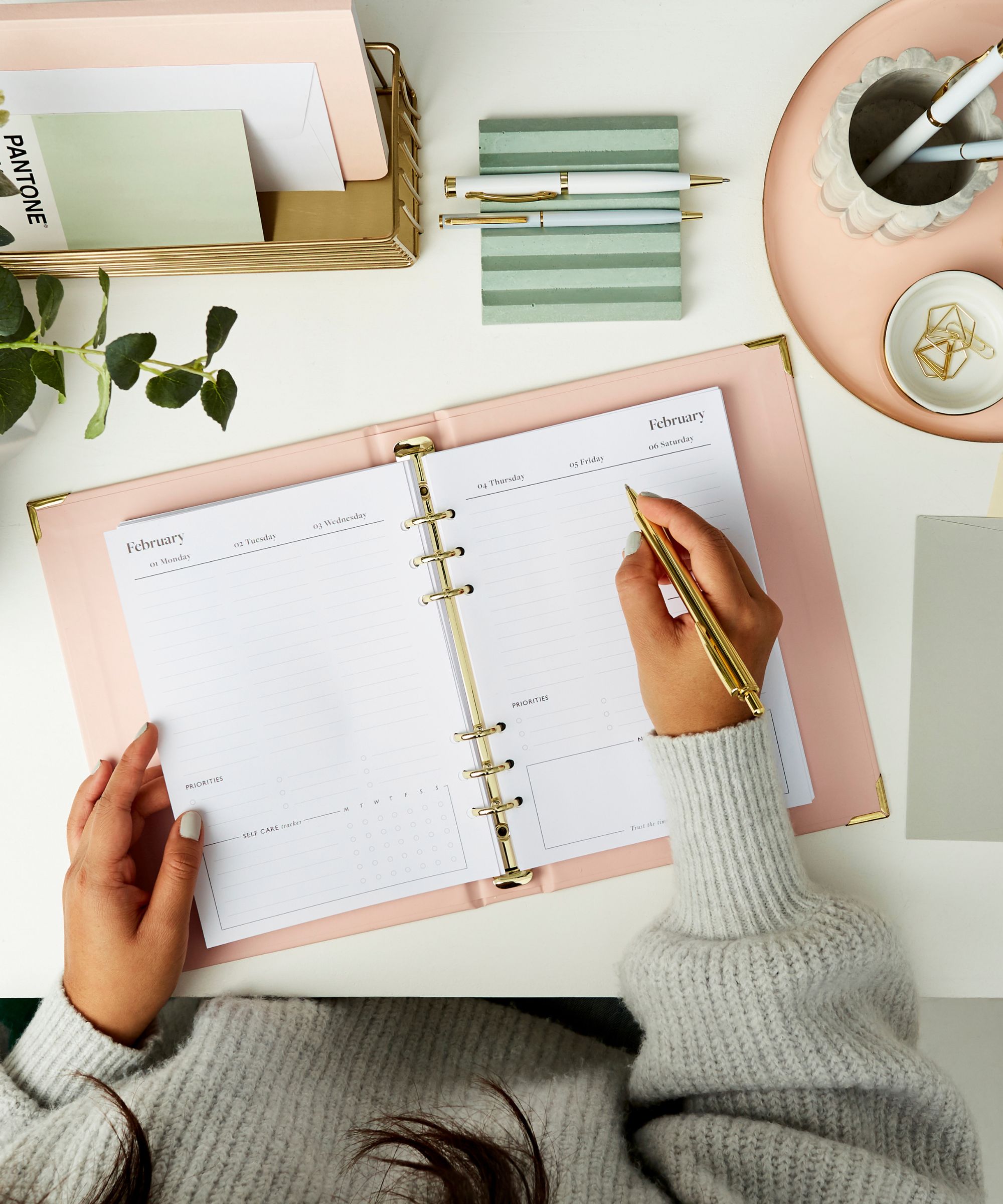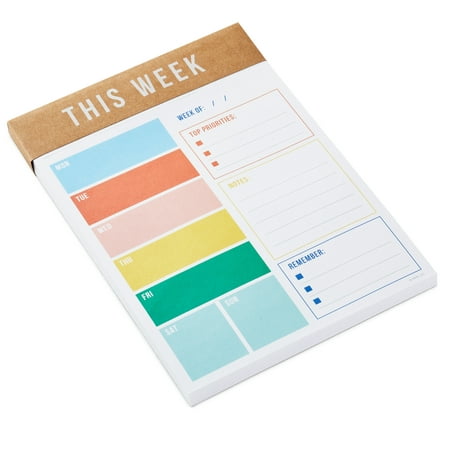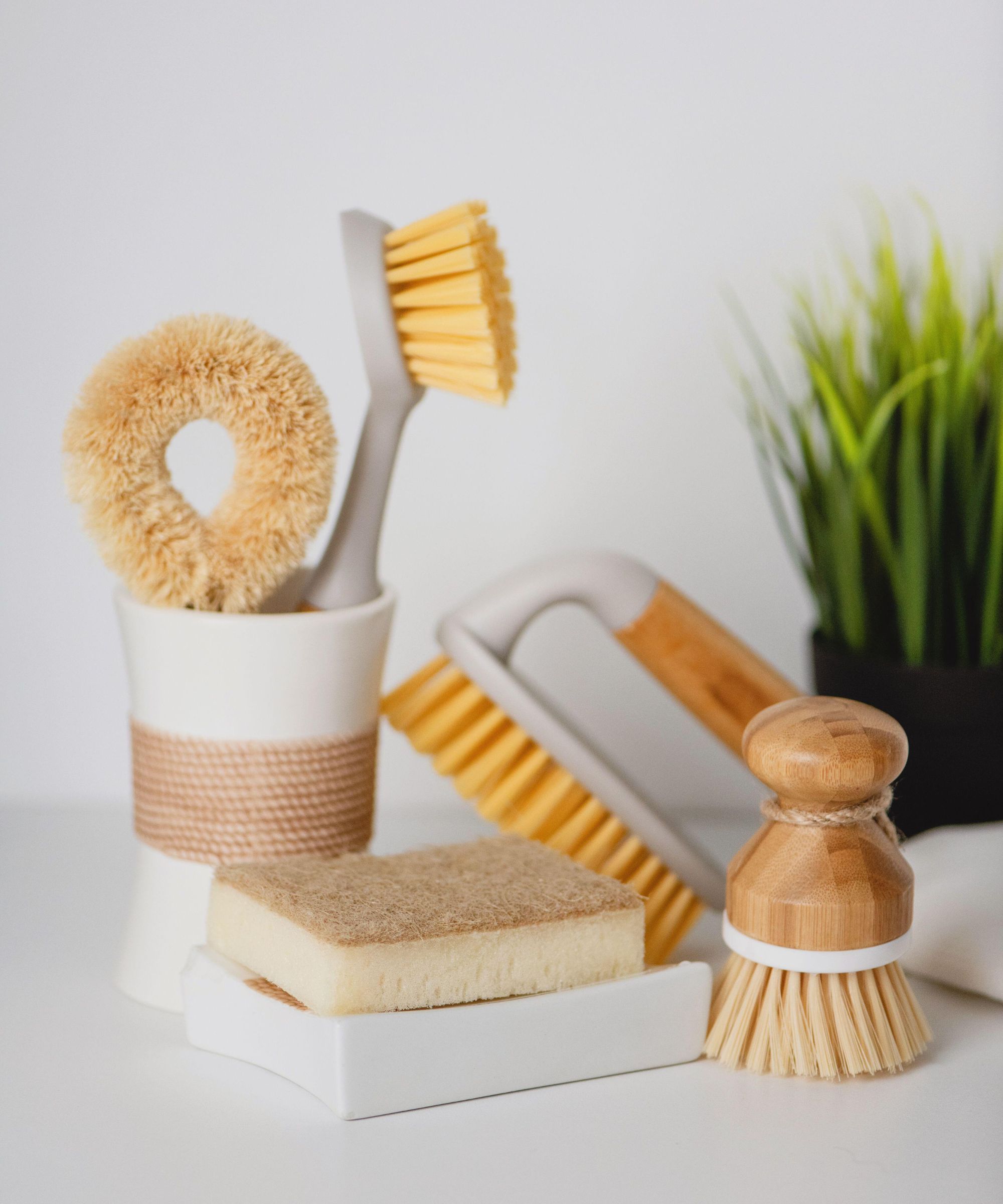How the ‘Avoidance Method’ helps me tackle the worst tasks on my to-do list
Stop putting off the worst things on a to-do list with this laid-back approach to productivity


If, like me, you love to make to-do lists to help visualize your tasks for a day, then you are also probably guilty of leaving one or two tough tasks on there for days – if not weeks – on end.
Whether it be deep cleaning the bathroom, or decluttering the kitchen, some tasks simply seem too overwhelming to tackle, and this feeling only gets worse when we see them lingering on our to-do lists for well over a week.
Tired of feeling guilty about not ticking everything off, I implemented a new approach to dealing with tough household tasks – the ‘avoidance method’ – and it is my new favorite way to make to-do lists less overwhelming.
Avoidance method for tackling to do lists
I have previously tried productivity methods such as the Scary hour and the Ta-Dah list to try and make my overwhelming to-do lists a little more manageable, but these approaches still required me to get a lot done in one day and I had to be in the right frame of mind.
These methods certainly work for a lot of people, but when I was feeling exhausted, these methods only made me feel more guilty at the end of the day when I didn’t achieve something.

When I finally reached the point where I was attempting to clean when feeling overwhelmed every single day, I knew something had to give. So, instead, I decided I would tackle just one task I had previously been putting off per day. All of the other tasks were moved off of my everyday to-do list and onto a separate list I called my ‘Avoidance’ list. These were the chores I was willingly allowed to ignore so long as I got one tough task done each weekday.
This could mean that so long as I cleaned and organized the cabinet under the sink, I was allowed to put off tasks like cleaning windows or dusting the house for other days. The next day, I would pick another single task off of this list and complete that, working only on Mondays to Fridays so that I could enjoy a chore-free weekend and allow myself to decompress.

I prefer a digital list system, but a physical weekly overview planner can be a great way to note down some of your avoidance tasks and revisit them throughout the week without having the list accessible in your pocket at all times.
This method forces me to complete an important task that my house will fall into disrepair without, in order to mitigate my guilt for not getting other tasks done in the same day.
The result is that my tough chores are steadily completed without me feeling horrifically stressed out on a daily basis. Yes, the chores may still be a little daunting, and are often still unenjoyable, but the laid-back approach means I can still enjoy the rest of my day without neglecting tasks that would later make cleaning and home maintenance harder.
It is now, by far, my favorite cleaning shortcut.
The Avoidance Method at a glace

- Create a list of tasks you usually put off but are important to complete at some point. For example, deep cleaning kitchen cabinets, cleaning appliances, or decluttering a closet
- Set a goal to accomplish only one of these tasks per day, picking which one to tackle based either on your energy levels or which task is most pressing
- Reward yourself for completing the tough task, and relax for the rest of the day, knowing you have accomplished something that you would otherwise procrastinate and feel guilty about
- Repeat each weekday, leaving the weekends to relax
FAQs
How do I stop obsessing over a to-do list?
If you find yourself obsessing over your to-do list and struggling if you don't complete everything on there, you may need to take a step back. Rather than framing it as a daily to-do list, simply note any tasks you want to complete at some point in the next week or two. Then, cross a few off a day as and when you feel like you have the energy for them. This removes the tight time constraints to allow you to relax a little more and avoids you over-planning.
Why do to-do lists give me anxiety?
To-do lists are a common cause of anxiety for many people .This is because, while they offer structure, they are visible reminders of any tasks you ‘failed’ to complete. Tasks that then linger on the list for weeks or months can then be bad for mental health and motivation, leading to a never-ending cycle of dread or anxiety.
If you struggle with feeling guilty over not completing enough in one day, or find it hard to get motivated to clean, I found that pairing this method with a goal-setting app such as Finch can be a great motivator. I set myself the goal of completing one ‘avoidance’ task a day, and once completed, I could tick it off in the app and get a small virtual reward. This, in turn, gives me a dopamine boost that encourages me to keep up the daily cleaning habit for a tidier home.
Sign up to the Homes & Gardens newsletter
Design expertise in your inbox – from inspiring decorating ideas and beautiful celebrity homes to practical gardening advice and shopping round-ups.

Chiana has been at Homes & Gardens for two years and is our resident 'queen' of non-toxic living. She spends most of her time producing content for the Solved section of the website, helping readers get the most out of their homes through clever decluttering, cleaning, and tidying tips. She was named one of Fixr's top home improvement journalists in 2024.
-
 Pot plants that thrive on neglect – 5 easy-going picks for super busy gardeners
Pot plants that thrive on neglect – 5 easy-going picks for super busy gardenersFrom spiky succulents to pollinator-friendly blooms, these expert recommendations need barely any attention to flourish
By Holly Crossley
-
 The 5 most welcoming front door colors for spring – these happy colors promise to invite joy into your home, according to experts
The 5 most welcoming front door colors for spring – these happy colors promise to invite joy into your home, according to expertsMaking a front door look welcoming using clever color choices is a design goal everyone wants to achieve. We spoke to a few of our favorite interiors people to find out their paint color secrets
By Jennifer Ebert